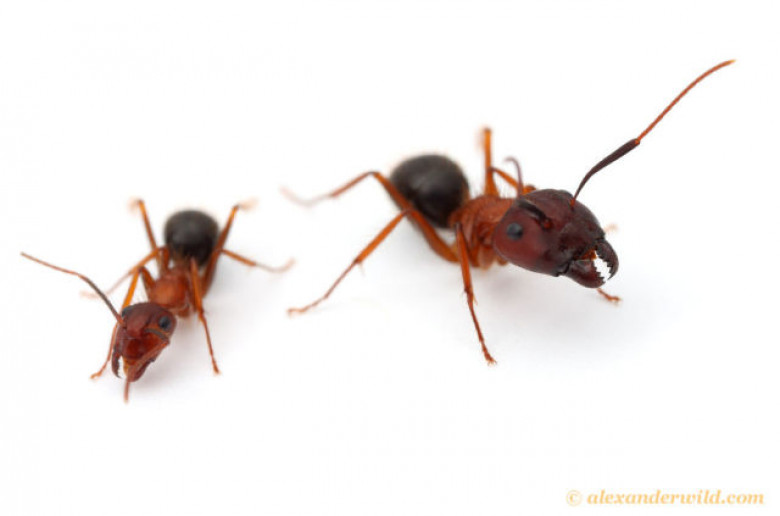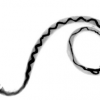Slightly creepy experiment with ants shows that drugs can permanently alter behavior
Carpenter ants live in a caste system, where some members of the colony grow into large, strong worker guards known as majors and others grow into small, inquisitive food scouts known as minors. Scientists have long been fascinated by how majors and minors come to be. Though the two castes share the exact same genomes (and parents), they look and behave in dramatically different ways. Clearly, these differences must be epigenetic, or triggered by environmental factors that take hold after the ants are born. Now a group of researchers have shown that just one dose of a specific enzyme, injected into a recently-hatched major's brain, can mess with the ant's epigenome for months.
Many studies have shown that social insects like bees create their biological castes with food. Queen bees, for example, are made by feeding royal jelly to a larva. Speculating that a similar mechanism might be at work in carpenter ants, University of Pennsylvania developmental biologist Daniel Simola and his colleagues attempted to isolate a substance they could feed to ants that might cause one caste to transform into another. Specifically, they wanted to see whether they could induce a major worker to act like a minor worker, abandoning her job as guard to become a forager. They focused specifically on enzymes that affect 160 genes whose activity diverged the most between minors and majors. Those genes included ones associated with learning, memory, and the way neurons communicate with each other in the brain.










































































